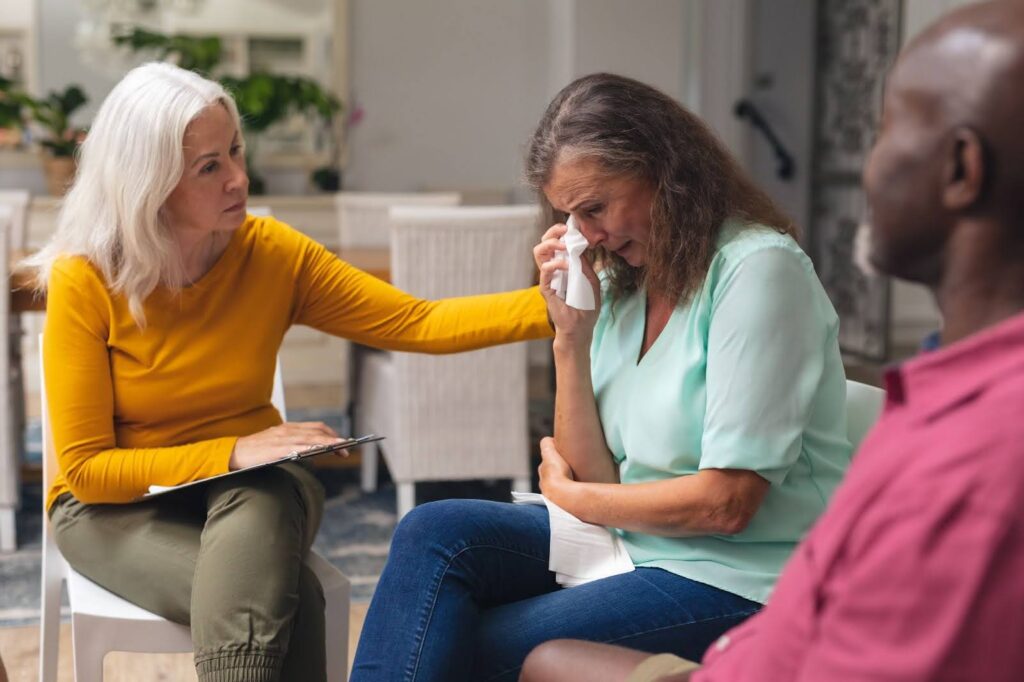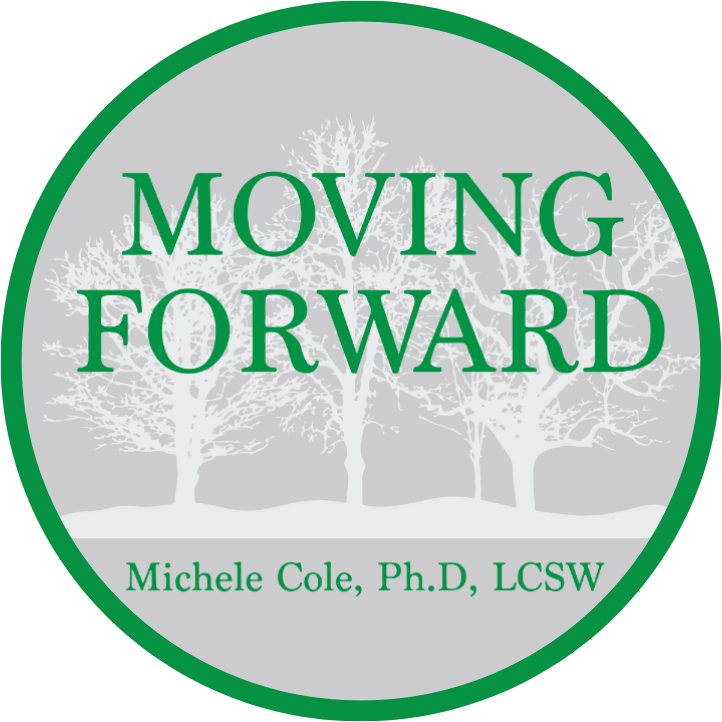
Grief doesn’t follow a neat timeline. One day you’re numb, the next you’re flooded with emotion. Some mornings, just getting out of bed feels impossible. The loss can take over your thoughts, interrupt your sleep, and even make your body ache. Grief counseling offers a way through the chaos that grief brings without making you feel like you’re broken.
Understanding the Impact of Grief on the Whole Self
Grief isn’t just sadness; it affects your entire being. The emotional fallout is heavy, but the body and mind absorb the shock, too. Grief can unravel sleep, weaken your immune system, and blur your ability to focus. Counseling works because it doesn’t just address one part of the pain; it supports the whole person.
Emotional Disruption After Loss
Grief shakes emotional foundations in unpredictable ways. People often feel waves of anger, guilt, confusion, or numbness. These emotions may come and go without warning, making everyday life hard to manage. Others may feel nothing and wonder if something is wrong with them. A grief counselor helps normalize this turbulence, offering a safe space for all emotions. That validation alone can begin to relieve the emotional chaos.
Physical Toll of Grief
What happens in the heart often shows up in the body. Many grieving people struggle with headaches, body aches, chest tightness, or digestive issues. Chronic grief can raise cortisol levels, which harms long-term health. Lack of sleep, skipped meals, and physical exhaustion become part of the cycle. Grief counseling can identify how stress is showing up in the body. Together, client and counselor find ways to restore balance.
Mental Strain and Cognitive Fog
Grief often clouds thinking and memory. Simple tasks like making a grocery list feel overwhelming. Some individuals struggle to concentrate at work or recall conversations. Mental exhaustion sets in, and decision-making becomes difficult. Grief counseling creates space to process the clutter in the mind. With guidance, clarity slowly returns, and the mental fog begins to lift.
How Grief Counseling Supports Emotional Health
The emotional dimension of grief can feel endless. Counseling creates a structure where emotions aren’t rushed, ignored, or judged. It teaches people how to sit with sorrow without letting it consume them. Emotional relief often begins once someone feels heard, seen, and supported.
Validating Complex Emotions
Grief doesn’t follow a formula, and emotions often clash. A person may feel sad, relieved, or angry with someone gone at the same time. These mixed emotions are complex to express and even harder to explain to friends or family. Counselors understand these contradictions and treat them with care. That validation makes clients feel less alone and less confused. Emotional stability starts when guilt and shame are replaced with understanding.
Preventing Emotional Avoidance
Many people try to stay busy to escape grief. They distract themselves with work, errands, or social media. While this works temporarily, the pain always resurfaces. Suppressed grief can appear later as anxiety, mood swings, or chronic sadness. Counseling helps clients stop avoiding emotions and start acknowledging them. This approach prevents long-term emotional damage.
Building a Personal Grief Narrative
Everyone processes loss differently because every relationship is unique. Grief counseling encourages individuals to tell their personal story of loss. Putting feelings into words brings a sense of order to emotional chaos. A counselor helps make connections between memories, pain, and healing. This storytelling process doesn’t erase grief but allows people to carry it differently. Over time, the story shifts from loss to strength.

Grief Counseling and Physical Health Recovery
Grief affects more than the heart and mind; it also disrupts bodily functions. Stress, fatigue, and neglecting basic needs can weaken the immune system. A key part of healing involves reconnecting with the body’s needs. Grief counseling supports this process through small, steady changes.
Encouraging Rest and Sleep Hygiene
Sleep often disappears when grief takes over. Some can’t fall asleep due to racing thoughts, while others wake up repeatedly throughout the night. Counselors work with clients to create calming routines. Techniques include mindfulness, reducing screen time, or writing before bed. These simple adjustments lead to better sleep, which improves mood and energy. Rest is one of the first steps toward physical recovery.
Reducing Stress-Induced Physical Symptoms
The body stores emotional stress. Chronic grief can result in tight shoulders, jaw tension, or fatigue. Over time, this can develop into headaches or gastrointestinal issues. Counselors help identify physical reactions to stress. They show how to reduce tension with guided breathing or progressive relaxation techniques. These tools improve comfort without relying on medication.
Supporting Nutrition and Movement
Grieving people often stop caring about food and exercise. They skip meals, and movement feels pointless. But basic physical needs are closely linked to mood regulation. A counselor doesn’t shame clients into wellness but supports realistic steps. Simple routines like walking around the block or eating one healthy meal daily make a real difference. These changes strengthen the body and uplift the mind.
Mental Health Growth Through Grief Counseling
Mental resilience doesn’t mean avoiding sadness but navigating it with tools. Counseling supports mental health not by rushing healing, but by guiding it. It builds the skills needed to manage grief without letting it spiral into deeper mental health conditions.
Addressing Depression and Anxiety
Grief sometimes crosses into depression or anxiety. When hopelessness lingers or daily life feels unbearable, counseling steps in. Therapists can distinguish between normal sadness and deeper mental health risks. They offer techniques to manage anxious thoughts and lift heavy moods. Emotional grounding exercises, routines, and positive reinforcement help ease the pressure. This tailored care lowers the risk of worsening mental conditions.
Developing Coping Skills
Most people aren’t taught how to handle deep emotional pain. Grief counseling offers coping strategies that fit the person’s lifestyle and personality. These might include journaling, structured routines, or emotional check-ins. Tools like this help regain control when everything feels uncertain. Over time, clients notice minor improvements that build mental strength. Each new skill becomes a step toward inner stability.
Restoring Cognitive Function
Loss affects how the brain works. It slows down focus, problem-solving, and motivation. Grief counseling addresses these struggles by helping clients plan, prioritize, and reflect. With a therapist’s support, mental clarity begins to return. Tasks become more manageable, and thinking becomes sharper. Eventually, the brain feels like it’s working again.

The Power of Connection in Grief Counseling
Grief often isolates. Friends may not know what to say, and some people disappear altogether. Counseling offers real connection and consistent support. That connection can be life-changing when the rest of the world feels distant.
Breaking Isolation and Building Trust
Loss often causes people to pull away from others. They may feel misunderstood or exhausted by small talk. A counselor offers a steady presence and deep listening. That consistency builds trust over time. With someone who truly listens, the pain feels less heavy. Trust creates space for honest healing.
Group Counseling As a Shared Experience
There’s power in hearing others say, “Me too.” Group counseling connects people who are grieving in different ways. Listening to others helps individuals feel seen and understood. It also shifts focus outward and breaks the cycle of self-blame. Sharing stories in a group setting promotes healing from all sides. Participants often form bonds that last beyond the sessions.
Rebuilding Relationships Through Healing
Grief can change how people interact with others. Some relationships grow strained, others fade entirely. Counseling helps people identify where the connection has broken down. It also supports communication, especially when grief makes words hard to find. As people heal, they often reconnect with family and friends. Stronger relationships make the healing more sustainable.
When and Why to Seek Grief Counseling
Not every person who grieves needs counseling, but many benefit from it. Some find it helps immediately, while others reach out after months of struggling. Counseling isn’t about fixing grief but carrying it without collapsing. It can be a lifeline when the world feels too heavy.
Signs Grief Has Become Overwhelming
Everyone grieves differently, but some warning signs shouldn’t be ignored. Constant numbness, rage, self-blame, or deep hopelessness may signal deeper issues. If grief affects your work, relationships, or physical health, it’s time to ask for help. Counselors know how to spot these patterns early. They help before things spiral even further. Intervention can stop the pain from taking root in the long term.
The Benefits of Support During Vulnerable Moments
Support during vulnerable moments doesn’t erase the pain, but it can reduce the weight. Counseling offers a space to cry, question, and explore the mess without judgment. This consistent care stabilizes emotions and strengthens confidence. The grieving person begins to feel more in control, even if the pain remains. That stability leads to more grounded choices in daily life.
What to Expect in a Grief Counseling Session
The idea of counseling often brings fear or uncertainty. But sessions aren’t scripted or forced. Most begin with an open conversation in a calm, private space. The client sets the pace, and the counselor listens more than talks. Together, they explore memories, emotions, and what healing might look like. Over time, sessions feel more like connection than correction.
Start Grief Counseling to Reclaim Your Peace and Health
You don’t have to carry the weight alone. Grief can blur your days, drain your body, and steal your calm, but it doesn’t have to stay that way. Support exists that works, with fundamental tools for real healing. If any part of you is tired of barely getting by, that’s the part ready for change. Reach out and take the next honest step toward relief.
Visit the Moving Forward PLC blog for expert guidance on navigating grief.
